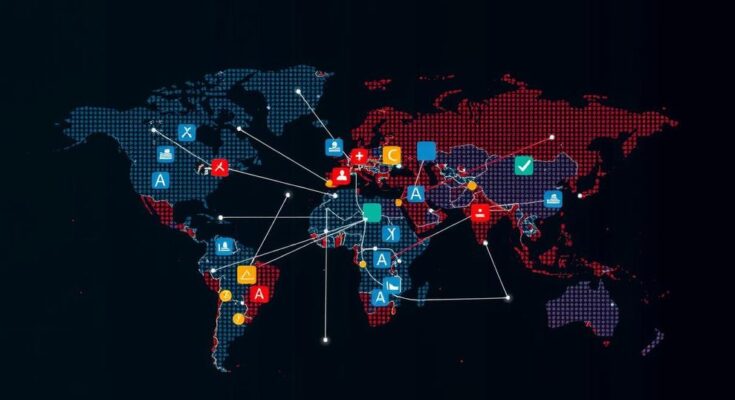Meta’s report on the 2024 elections revealed the removal of 20 covert influence operations and indicated minimal AI impact on election outcomes. The company highlighted its commitment to combating misinformation, especially from Russia, while balancing user freedom and safety. Meta also outlined stringent ad policies and established operations centers to monitor electoral integrity across various nations.
On December 3, Meta published its report regarding the 2024 elections, revealing its efforts to combat covert influence operations on its platform. The report highlighted the removal of at least 20 covert operations and asserted that the impact of artificial intelligence on election results was minimal. Meta stated that since the 2016 elections, it has adapted its strategies to counteract emerging threats, particularly from foreign entities like Russia, which remains the primary source of these operations.
The report noted a shift in influence operations to platforms with fewer safeguards than Meta’s, and the company kept a close watch on generative AI’s impact within its Coordinated Inauthentic Behavior (CIB) networks. While Meta anticipated approximately two billion voters in major democracies, it committed to ensuring a balance between freedom of expression and user safety, recognizing that its error rates in content enforcement needed improvement.
In its persistent efforts, Meta established numerous election operations centers globally to monitor and swiftly address issues during elections in various countries, including the United States, Europe, and Asia. It maintained its policy from 2020 that prohibits new political or social ads in the final week of an election campaign, citing concerns over voter misinformation. As part of its accountability measures, Meta demanded that advertisers disclose any AI or digital techniques employed in political ads this year.
Meta’s AI technology was active in refusing nearly 600,000 requests for generating fraudulent images of several high-profile politicians in the lead-up to the election. Furthermore, it noted that many of the disrupted operations were linked to regions like the Middle East and Europe, with Russia being the dominant player in covert influence activities. Despite the challenges posed by CIB networks, Meta used behavior-centric investigations to dismantle these operations efficiently.
The topic of covert influence operations on social media platforms has gained significant attention, particularly in the context of elections. Disinformation campaigns can sway public opinion and undermine democracy, leading platforms like Meta to implement stringent measures to enhance election integrity. Historical interference has been attributed to foreign actors, notably Russia, amplifying concerns over the efficacy of current safeguards against such threats. Meta’s report underscores a commitment to learning from past experiences to mitigate the risks associated with misinformation and foreign influence in elections. The incorporation of artificial intelligence into these operations marks a critical area of scrutiny as technology continues to evolve, posing new challenges to established norms of communication and information dissemination.
In summary, Meta’s proactive measures to combat covert influence operations reflect its ongoing commitment to safeguarding democratic processes. The report illustrates the company’s responsiveness to historical patterns of interference, particularly from foreign actors. By reinforcing its policies and leveraging technology, Meta aims to strike a delicate balance between user expression and security while continuously reviewing its strategies to remain ahead of potential threats.
Original Source: www.upi.com




